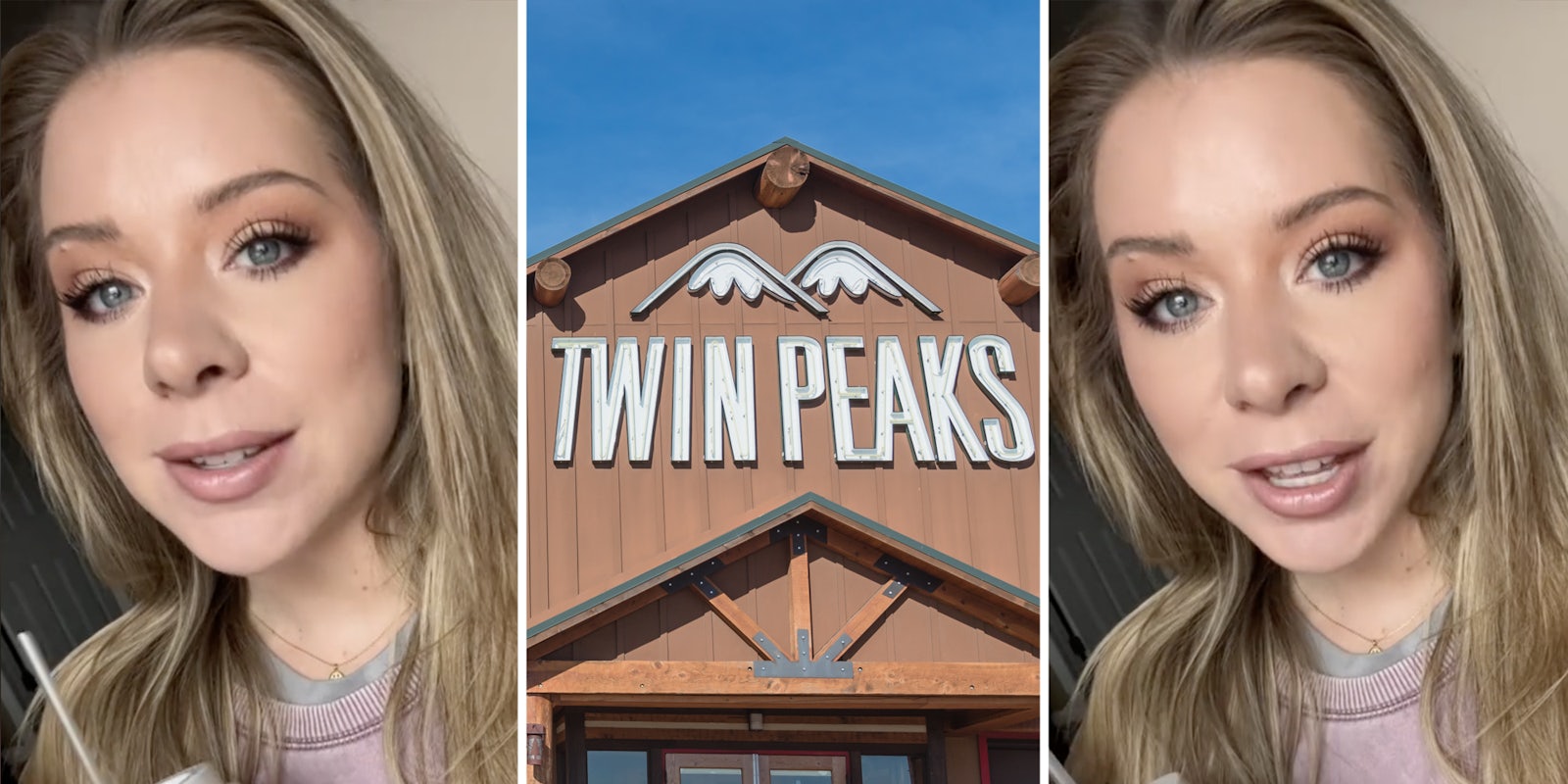Attorney Paige Sparks (@lawyerpaige)has ignited a conversation on tipping culture and business ethics with her viral TikTok video, amassing over 250,000 views.
Sparks takes aim at Twin Peaks, a restaurant chain she describes as the “lumberjack version of Hooters,” for its controversial tipping policy that has waitresses shouldering credit card fees on customer tips. The critical disclosure accompanying her video reveals her ongoing lawsuit against another LLC of the same restaurant, adding a personal stake to her critique.
In her video, Sparks asks, “Is their food good? Because their tipping policies certainly aren’t,” highlighting her disdain for the policy right off the bat. She explains that one of the Twin Peaks restaurants in Kansas City, owned by 3B Lodge, is under fire for making waitpersons pay the credit card fees on the tips they receive. According to Sparks, this policy raises legal and ethical questions, even though “it really just depends on how exactly they do it and where the money is coming from.”
Sparks articulates her skepticism toward the restaurant’s motives: “I’m not really surprised that they’re doing something like this because I’m actually suing them for another reason right now.” She suspects that the restaurant’s approach to business operations is to “just kind of do whatever they want and ask questions later.”
The attorney breaks down the financial implications of this policy for the staff, illustrating with a hypothetical scenario where a waitress is penalized for receiving a tip via credit card. “If a waitress gets a $100 tab from somebody, and they tip $20 on their credit card, she’s going to have to pay Twin Peaks 50 cents for processing the tip,” Sparks explains, emphasizing what she says is the absurdity of passing such operational costs onto minimum wage employees.
Sparks warns of the legal dangers this policy might entail, suggesting it operates in a “dangerous territory” that could potentially lead to class-action lawsuits for wage theft if implemented improperly. She points out that if such deductions cause an employee’s earnings to fall below the federal minimum wage, it could violate the Fair Labor Standards Act.
According to the Department of Labor, employers can take out the fee that credit card companies charge them from employees’ tips when customers leave tips on a card. For example, if the credit card fee is 3%, the employer can give the employee 97% of the tip. However, employers can only take out the credit card fee and must ensure employees still get at least the minimum wage, even after the fee is taken out. Also, these tips must be paid by the next payday and can’t be delayed while waiting for the credit card company to pay the employer. Some states have stricter rules that might not allow this deduction at all.
Despite acknowledging the legal possibility of deducting credit card fees from tips under the Fair Labor Standards Act (FLSA), as detailed in a Paymaster article in 2023, Sparks criticizes the practice for its potential to demoralize staff. The Paymaster article confirms that while employers can deduct credit card fees from tips, they must comply with strict guidelines to avoid falling foul of the law or state regulations.
Sparks concludes her critique by challenging the ethicality of Twin Peaks’ policy, urging viewers to consider the implications of supporting businesses that impose such burdens on their staff. She facetiously notes, “Twin Peaks is giving a whole new meaning to the phrase ‘just the tip’ for their workers, but it’s the same end result because they’re still getting screwed.”
“It’s getting out of hand,” said one commenter. “The restaurants get away with not paying a living wage, and now they’re charging their servers to work there? Wild.”
@lawyerpaige Full discloaure: I may be a little biased due to my ongoing Twin Peaks lawsuit #law #legal #lawyer #legaltiktok #lawyersoftiktok #tips #twinpeaks #work #laborlaw ♬ original sound – Paige Sparks
Sparks also addressed apparent Twin Peaks employees who weren’t pleased with her message: “I’m not arguing in the comments with any more Twin Peaks servers. Y’all have misdirected anger and need to bring that energy to Twin Peaks 
Through her detailed examination and personal insights, Sparks’ video sheds light on the complexities and controversies of tipping culture, inviting a broader discussion on the responsibilities of businesses toward their employees.
The Daily Dot has contacted Sparks and Twin Peaks/3B Lodge for comment.


